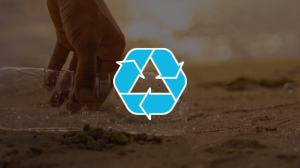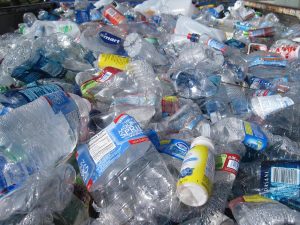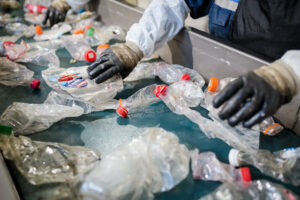What Biden could do about plastics
Most environmentally oriented eyes on the Biden administration are focused — appropriately — on mitigating climate change, creating jobs and transitioning to a clean energy future. Count me among them.
So, I’m not holding out hope for a federal circular economy policy any time soon (I’ll let the EU take the lead on that front). However, I will pay close attention next year to the administration’s stance on everyone’s favorite entry point into the circular economy: plastics. More specifically, the potential to weave together or harmonize our current patchwork of city- and state-level regulations into a coordinated federal effort to chip away at the U.S.’s outsized plastics footprint.
The most ambitious bill that could come across Biden’s desk is the Break Free from Plastic Pollution Act, introduced earlier this year by Sen. Tom Udall (D-New Mexico) and Rep. Alan Lowenthal (D-California).
The sweeping legislation would establish a nationwide container deposit system (a.k.a. extended producer responsibility); set post-consumer recycled content minimums for plastic packaging that gradually would increase to 80 percent in 2040; and ban a number of single-use items including plastic bags, polystyrene foodservice containers and disposable utensils and straws. It’s controversial, to say the least, with predictable divisions between industry lobbying for voluntary commitments and activist groups demanding regulatory action and accountability.
This week, a coalition of 550 environmental groups, including many of the bill’s supporters, released the Presidential Plastics Action Plan, a proposed framework for the president-elect to reduce plastics entering the waste stream and regulate their management — with or without the support of Congress.
Here’s what makes me optimistic: Plastic pollution has become a bipartisan issue.
Although Biden’s emphasis on infrastructure, climate and environmental justice feels perfectly poised for an intersectional challenge such as plastic pollution, I’m not feeling confident that this is where Biden will spend his political capital with executive action, at least any time soon. But I’m hoping to be surprised.
On the international stage, I’ll be tracking two major opportunities for the Biden administration: a global treaty on plastics pollution and the Basel Convention, a United Nations treaty that regulates the transboundary movement and disposal of hazardous waste, amended in 2019 to regulate the global plastic waste trade.
More than two-thirds of United Nations member states have declared they are open to a new agreement to tackle plastic waste and harmonize policy efforts among signatories, akin to a Paris Agreement for plastics. And while the U.S. has remained predictably silent on the treaty, WWF, the Ellen MacArthur Foundation and Boston Consulting Group recently released a manifesto calling for businesses to support such a treaty, garnering early support from major global brands including Coca-Cola, Nestlé and PepsiCo, among other top global plastic polluters, signaling potential for broader support to enter into negotiations.
Although the U.S. is not a party to the Basel Convention, come next month, many shipments of plastic waste from the U.S. to other countries will be prohibited or complicated, increasing the strain on domestic recycling markets.
I’m not wildly optimistic that the Break Free from Plastic Pollution Act will become the law of the land while the president’s ambition for environmental action is tempered by Republican control of the Senate. I’m also not filled with confidence that the U.S. quickly will become a global leader in the fight against plastics pollution.
But here’s what makes me optimistic: Plastic pollution has become a bipartisan issue.
If the historic influx of recycling legislation in Congress over the past few years tells us anything, it’s that recycling and materials management are on the national agenda.
The education-focused RECYCLE Act and infrastructure-oriented RECOVER Act both received some bipartisan support before stalling amid the pandemic. And President Donald Trump signed the updated Save Our Seas 2.0 Act recently passed by both chambers of Congress. Among other things, it will provide $55 million in funding each year through 2025 to improve “local post-consumer materials management,” including municipal recycling programs (which could use the additional support these days).
That’s a pittance compared to what’s needed, but we’ll take it. Indeed, when it comes to solving the plastics waste problem, these bills are woefully inadequate. They underscore the key distinction between tackling plastic pollution and addressing the problem at its root: Are we turning off the plastics tap, or bailing out the bathtub with a thimble? However insufficient, some federal action is certainly better than none.



